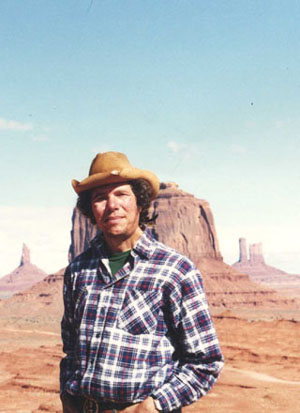|
Notes from a Sodbuster’s Wife, Kansas, 1868
What really got us in the end—
we women who didn’t make it,
who withered and blew away in the open—
was the wind. Space, yes, and distance,
too, from neighbors, a piano back in Boston.
But above all, the wind.
In our letters it shrieks hysteria from sod huts,
vomits women prematurely undone by loneliness,
boils up off the horizon to suck dry
their desire as it flattened the stubborn grasses.
Not convinced? Scan the photographs,
grainy and sepia-toned, like old leather.
Study our bony forms in plain black dresses,
our mouths drawn tight as a saddle cinch,
accusation leaking from rudderless eyes, betrayed.
I tried. Lord knows I tried.
Survived the locusts and even snakes
that fell from the ceiling at night,
slithering between us in bed.
I dreamed of water, chiffon, the smell
of dead leaves banked against a rotting log.
I heard opera, carriage wheels on cobblestone.
Cried and beat my fists raw into those earthen walls.
The wind. Even as it scoured
the skin it flayed the soul,
that raked, pitted shell.
And how like the Cheyenne,
appearing, disappearing,
no fixed location,
not even a purpose one could name.
Published in South Dakota Review
In The Crosshairs,
Comanche National Grassland
Fire sears the air this morning:
in my friend Katie’s poems,
the autumn colors,
twinges in my throat and jaw.
When cancer struck at twenty-five
it bore no pain, gave no warning.
Do I now, so many years later,
harbor malignant seeds
instead of geese on the wing?
Surely the truth lies elsewhere.
In the cottonwoods, for example,
that line the Purgatoire River,
the blazing of their gold
against the white peaks
a climax fever my bones inherit
as kindling flares to match.
Or in the blueberry muffins
Katie baked with flax flour,
how butter and steaming,
crumb-filled texture melting
on the tongue felt almost too sensual,
like an itch when the blood’s inflamed.
Then again, what of this ember
glowing deep within the marrow,
this coal that scores
even the most resistant wood
with blackened grooves?
There is the need to get things down,
to leave a mark, an imprint,
some sign that validates a life.
This is what the cottonwoods demand,
these stunted prairie grasses:
a voice that insists,
that announces to no one in particular,
ah Consuelo, mi vida,
I was here, I sang your song.
Published in Cottonwood
A Chance Encounter
Because she had once married a Greek
because I'd traveled to Greece in the '60s
because we were visiting a mutual friend
on the Upper West Side,
we had this conversation.
And though I protested when she sat down
that I had to get some sleep
she insisted on just one small glass of wine.
Which became two and then three
as we agreed that where Kazantzakis was transcendent,
Sartre was empty and Hemingway merely small.
Her hands spoke passion,
as if releasing flocks of doves into her voice,
a soft liqueur blend of European Texas
that drew me into that old yearning
for the expatriate life,
for garnet angels
and mandolins raining down
on Russia
and I thought yes,
there's that chorus in the blood,
the one that's attended all our births:
to track the minotaur,
the iron tyranny of things,
to find it and destroy it with the dance,
with epiphanies of water,
swinging up onto its head
like a naked acrobat
as light pours in from the sea.
Published in Lullwater Review
|

|